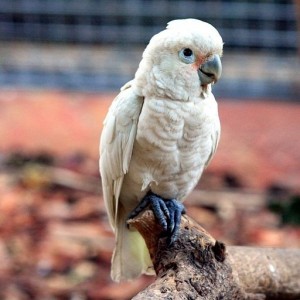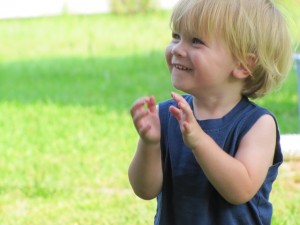Many people know that cockatoos are quite intelligent animals – they can learn to talk, do tricks and even to manipulate their owners in order to get what they want. However, Figaro, a Goffin’s cockatoo (pictured below), has learned how to get what he wants without the help of humans.
Figaro has invented and used stick tools in order to reach objects that he is unable to get using his beak or claws. While there are reports of tool innovations in corvids, a family that includes most of the mischievous birds, such as crows and magpies, it is unusual to fine these innovations in other families of birds.
Figaro’s ability became apparent when he was observed trying to use a piece of bamboo to retrieve a stone that he had been unable to reach using his claws. Immediately after this behaviour was observed Figaro was visually isolated from the group and testing began.
When researchers placed cashew nuts on the outside of the cage, Figaro broke off pieces from a large wood beam with his beak and used them to rake the nut towards him until he was able to reach it.
Figaro can be seen working with his tools in this video documenting the experiment:
 via youtube user Sergeytule
via youtube user Sergeytule
The time for manufacturing of the tools showed a dramatic decrease across trials; while the first tool took almost 25 minutes to make, the tools used in following trials only took about 2.5 minutes
Unfortunately, not all cockatoos are as intelligent as Figaro. When testing Pipin, another male in the same conditions as Figaro, he did not try to use tools. However, Hiedi, a submissive female whowas left with Figaro during the experiment, demonstrated some of Figaro’s behaviours like breaking off pieces of wood and pushing them through the wire cage, but she did not exhibit the same success at tool making.
According to Frans de Waal , a neuroscience and animal behaviour researcher, discovering these skills in even a singular bird shows that the general intelligence that cockatoos are known to possess can lead to novel, innovative behaviours.
It is not clear what the cognitive mechanisms underlying these innovations are, and it is not known if tools play a major role in the species’ ecology, but the evidence found from this experiment provides a basis for much more in-depth research into the developmental history and evolution of this group of birds.
– Miranda Marchand










